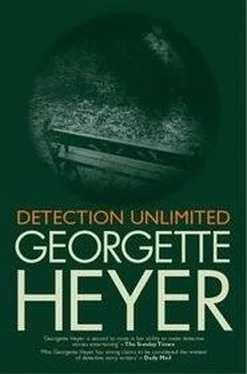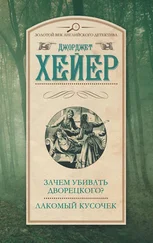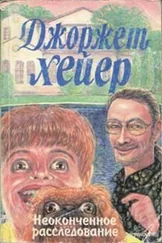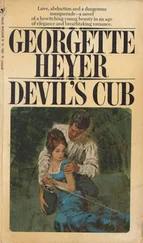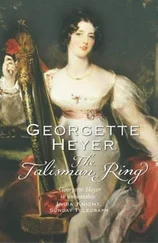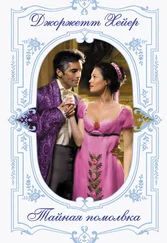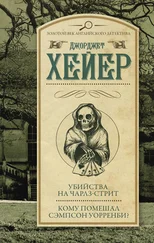Джорджетт Хейер - Detection Unlimited
Здесь есть возможность читать онлайн «Джорджетт Хейер - Detection Unlimited» весь текст электронной книги совершенно бесплатно (целиком полную версию без сокращений). В некоторых случаях можно слушать аудио, скачать через торрент в формате fb2 и присутствует краткое содержание. Год выпуска: 1953, Жанр: Детектив, на английском языке. Описание произведения, (предисловие) а так же отзывы посетителей доступны на портале библиотеки ЛибКат.
- Название:Detection Unlimited
- Автор:
- Жанр:
- Год:1953
- ISBN:нет данных
- Рейтинг книги:4 / 5. Голосов: 1
-
Избранное:Добавить в избранное
- Отзывы:
-
Ваша оценка:
- 80
- 1
- 2
- 3
- 4
- 5
Detection Unlimited: краткое содержание, описание и аннотация
Предлагаем к чтению аннотацию, описание, краткое содержание или предисловие (зависит от того, что написал сам автор книги «Detection Unlimited»). Если вы не нашли необходимую информацию о книге — напишите в комментариях, мы постараемся отыскать её.
Detection Unlimited — читать онлайн бесплатно полную книгу (весь текст) целиком
Ниже представлен текст книги, разбитый по страницам. Система сохранения места последней прочитанной страницы, позволяет с удобством читать онлайн бесплатно книгу «Detection Unlimited», без необходимости каждый раз заново искать на чём Вы остановились. Поставьте закладку, и сможете в любой момент перейти на страницу, на которой закончили чтение.
Интервал:
Закладка:
“Well, sir, whose hands did you put it into?” asked Hemingway patiently.
“I think,” said the Vicar, “and such, also, is my wife's recollection, that I lent it last to young Ditchling. One of my choirboys, till his voice broke, and a sterling lad! The eldest of a large family, and his mother, poor soul, a widow. He has just received his call-up papers, and I fear that in the excitement of the moment he must have forgotten to return the rifle to me, which was remiss of him, and still more so of me, for not having reminded him. For young people, you know, Inspector, are inclined to forget things.”
“They are, aren't they, sir?” agreed Hemingway, with commendable restraint. “Did you say he was the eldest of a large family? With a whole lot of young brothers, I daresay, who have been having a high old time with a gun that doesn't belong to them, and have very likely lost it by this time!”
The Vicar, much dismayed, said: “Indeed, I trust not!”
“Yes, so do I,” said Hemingway grimly. “Where does this large family live?”
“At No. 2 Rose Cottages,” replied the Vicar, regarding him with an unhappy look in his eye. “That is the row of cottages facing the common, on the Trindale-road.”
“It is, is it?” said Hemingway, his excellent memory at work.
“I know what you are thinking,” said the Vicar, sitting down heavily in the chair behind his desk. “I can never sufficiently blame myself for having been the cause—unwitting, but equally unpardonable!—of bringing suspicion to bear upon a member of a gallant and a persecuted nation, and one, moreover, of whom I know no ill!”
“Well, I won't deny, sir, that it did come into my mind that this Pole with the unnatural name whom you all call Ladislas lodges in one of those cottages,” admitted Hemingway. “But if you know what I'm thinking it's more than I do myself, because I've always found it a great waste of time to think about things until I've got a bit more data than I have yet. However, I'm glad you've mentioned him, because what any gentleman in your position has to say about one of his parishioners seems to me well worth listening to.”
“I cannot, I fear, describe Ladislas as my parishioner,” said the Vicar depreciatingly. “He is not, you know, of my communion. One is apt, of course, to look upon every soul living in one's parish as a member of one's flock, and particularly in such a case as this, when the young man is so tragically bereft of family, home, even country, one feels impelled to do what one can to bring a little friendliness into a lonely life.”
“And I'm sure it does you credit, sir,” said Hemingway cordially.
“I am afraid it rather does Ladislas credit,” said the Vicar, with a sudden smile. “We had Poles stationed in the vicinity during the War, and the impression they made upon us was not entirely happy. One makes allowances, of course, but still— No, not entirely happy! Indeed, to my shame I must confess that I was far from being pleased when I heard that one had come to live permanently amongst us. However, I thought it my duty to visit the young man, and I was agreeably surprised by him. A very decent fellow, determined to make his way in his job, and combating, I grieve to say, a good deal of insular prejudice. I had no hesitation in introducing him to one or two people whom I thought he might find congenial, and I have had no reason to regret having done so. I should add, perhaps, that his landlady, our good Mrs. Dockray—a most respectable woman!—is quite devoted to him, and that is a more valuable testimony than mine, Inspector!”
“I wouldn't say that, sir, but at least it means he hasn't been spending his spare time getting all the village girls into trouble—not to mention the wives whose husbands are doing their military service,” said Hemingway.
Haswell, who had retired to the window-seat, laughed suddenly; but the Vicar, though he smiled, shook his head, and said that when he thought of the infants, of what he must call mixed parentage, whom he had been obliged to baptise, he felt more like weeping. From this reflection he was easily led to talk about the humbler members of his flock, the Chief Inspector listening to his very discursive descriptions with great patience, mentally sifting possible grains of wheat from obvious chaff, and guiding him adroitly, by way of Mrs. Murton, who obliged for Mrs. Lindale, into the higher ranks of Thornden society. But the Vicar could not tell him very much about the Lindales. Like Ladislas, Mrs. Lindale was not of his communion, and her husband, although brought up in the Anglican faith and a very good fellow, was not, alas, a churchgoer. It was a pity, the Vicar thought, that such pleasant young people live such retired lives. It was rarely that one had the pleasure of meeting them at any of the little entertainments in the neighbourhood. Mrs. Lindale was thought to be standoffish; he himself believed her, rather, to be shy. Miss Patterdale—whom he always called the good angel of the parish—had been most neighbourly, and spoke well of Mrs. Lindale. Indeed, she had persuaded Mrs. Ainstable to call, but nothing had come of it, Mrs. Lindale excusing herself from accepting invitations on the score of being unable to leave her little girl. A pity, he could not but think, for although the Ainstables were not of the Lindales' generation, and did not, nowadays, entertain a great deal, they must be considered, in every sense of the word, valuable connaissances .
“Yes, I've just been having a chat with them,” said Hemingway. “A gentleman of the old school, Mr. Ainstable. The Chief Constable was telling me that he lost his only son in the war, which must be just about as bad a thing for Thornden as it was for him, I should think.”
“Indeed, indeed you are right, Inspector!” said the Vicar earnestly. “One of the finest young men I have ever known, and one, moreover, who would have upheld traditions which are so fast vanishing. The flowers of the forest . . . A bitter blow for the Squire! One must hope that the present heir will prove a worthy successor, but I fear there will be a sad change in the relationship between the Squire and the village. Thornden does not readily accept strangers.”
“Nor any other place I ever heard of,” said Hemingway. “Still, we'll hope it won't happen for a good many years to come. The Squire looks pretty hale and hearty—more so than Mrs. Ainstable, I thought.”
The Vicar sighed. “For thou knowest not what a day may bring forth,” he said, as though he spoke to himself.
“Well, no, sir,” said Hemingway, startled but respectful. “That's true enough, but—”
“The Squire has angina pectoris,” said the Vicar simply.
“You don't say so!” exclaimed Hemingway, shocked.
“There is no reason to suppose that the Squire won't live for a great many years yet,” said Haswell.
“Indeed, we must all pray that he will, my dear Haswell!”
“Yes, but I see what the Vicar means,” said Hemingway. “With that disease—well, you don't know what a day may bring forth, do you? I'm not surprised Mrs. Ainstable looks so anxious. And he's not the sort to spare himself, by what I can see.”
“He is not an invalid,” said Haswell shortly. “He has been an energetic man all his life, and it would be extremely bad for him not to take the sort of exercise he's accustomed to.”
“True, very true!” the Vicar said. “One wishes, though that he had fewer cares to weigh upon him. I am almost tempted to say, that he were less conscientious, but one should not, and indeed one does not, wish that.”
“Struggling to keep up an estate which some kind of a cousin or nephew who lives in South Africa will inherit,” said Hemingway slowly. “And I should say it is a struggle.” He glanced at Haswell. “I saw he'd been cutting down a lot of timber.”
Читать дальшеИнтервал:
Закладка:
Похожие книги на «Detection Unlimited»
Представляем Вашему вниманию похожие книги на «Detection Unlimited» списком для выбора. Мы отобрали схожую по названию и смыслу литературу в надежде предоставить читателям больше вариантов отыскать новые, интересные, ещё непрочитанные произведения.
Обсуждение, отзывы о книге «Detection Unlimited» и просто собственные мнения читателей. Оставьте ваши комментарии, напишите, что Вы думаете о произведении, его смысле или главных героях. Укажите что конкретно понравилось, а что нет, и почему Вы так считаете.
